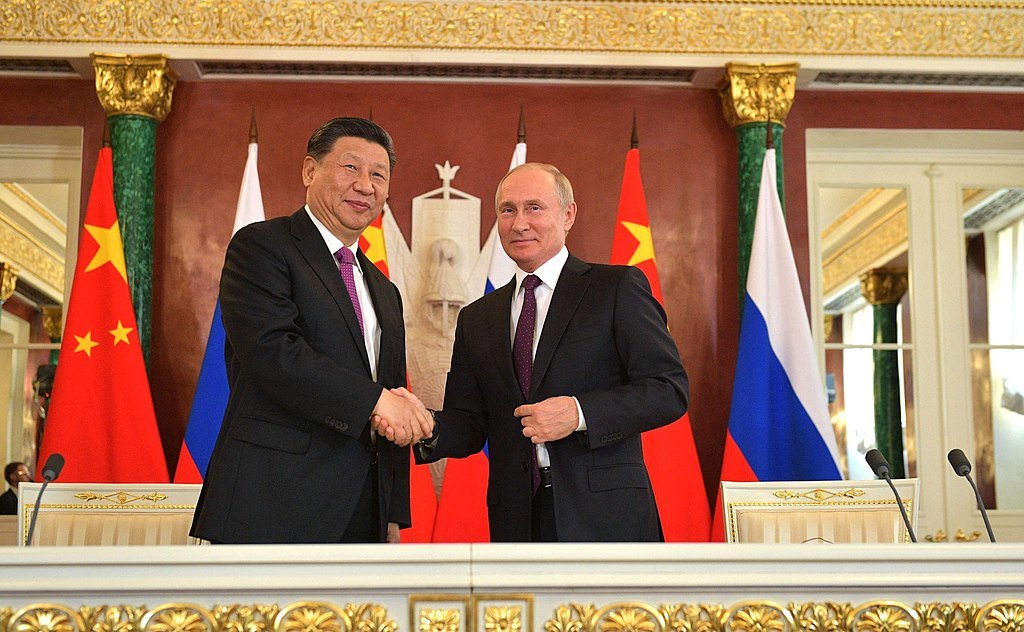China's Increasing Role in International Mediation and Its Impact on Global Affairs
 |
| Credit: Kremlin.ru, CC BY 4.0, via Wikimedia Commons |
China finds itself in a dilemma during the Ukrainian-Russian conflict, where it cannot offend its diplomatic partner and ally, Russia, nor violate its own principles of advocating for peaceful resolution of international disputes. China's mediation strategy includes respecting the sovereignty and territorial integrity of all countries, immediate ceasefire, diplomatic consultations, and multilateral cooperation to explore energy, trade, and investment projects. In recent years, China has shifted its diplomatic strategy from keeping a low profile to being proactive in defending its interests, known as "war wolf diplomacy."
The impact of China's international mediations on the United States depends on various contexts and interests. In some cases, Chinese mediation may align with US objectives of promoting regional stability and reducing violent conflicts. In other cases, Chinese mediation may compete with US objectives, such as weakening its alliances or influence. However, in some cases, Chinese mediation may have no direct impact on the United States.
China's increasing role in international mediations demonstrates its growing influence in global affairs. As China becomes a more prominent player in mediating regional conflicts, its impact on the international system is likely to grow, potentially challenging the dominance of traditional global powers like the United States.
